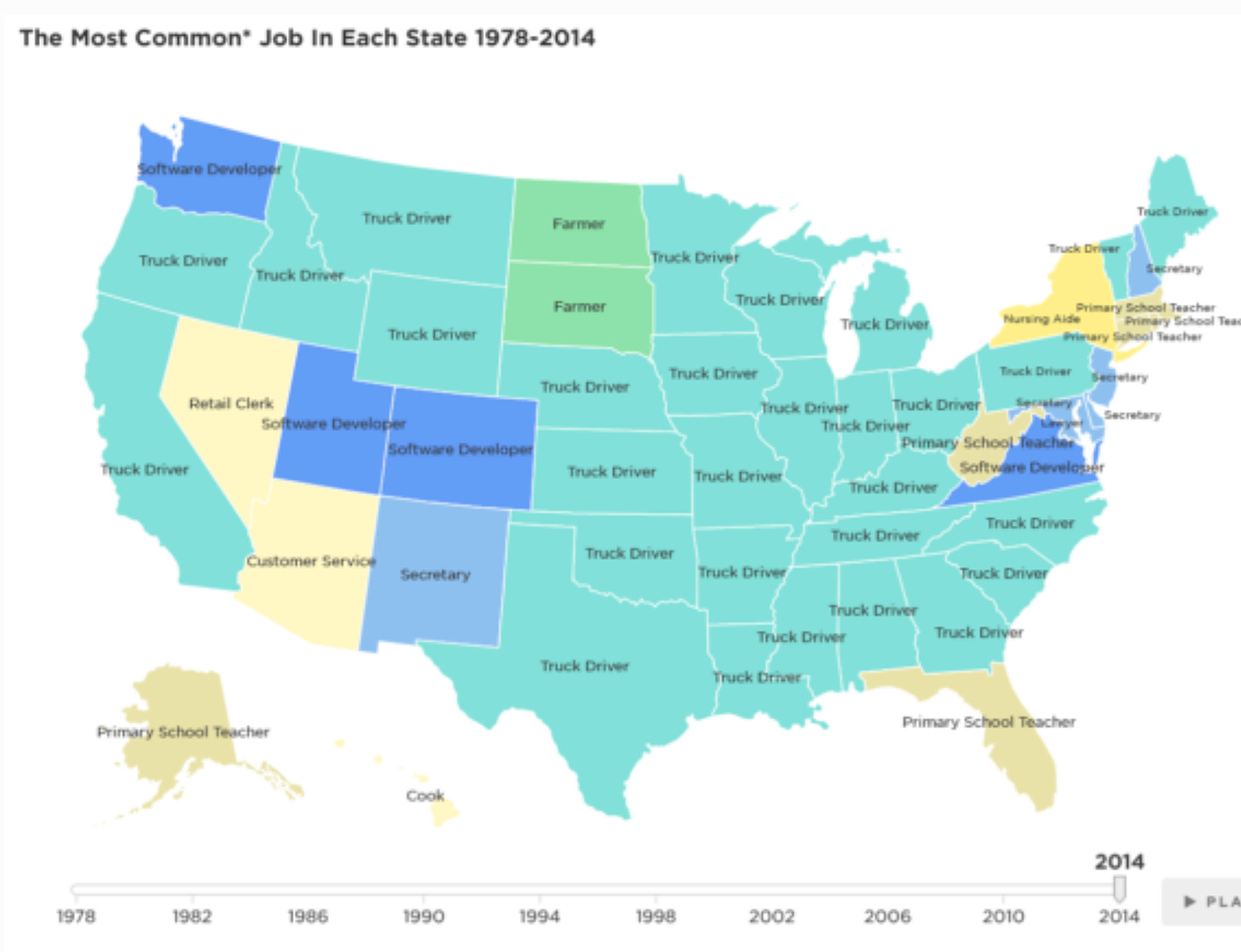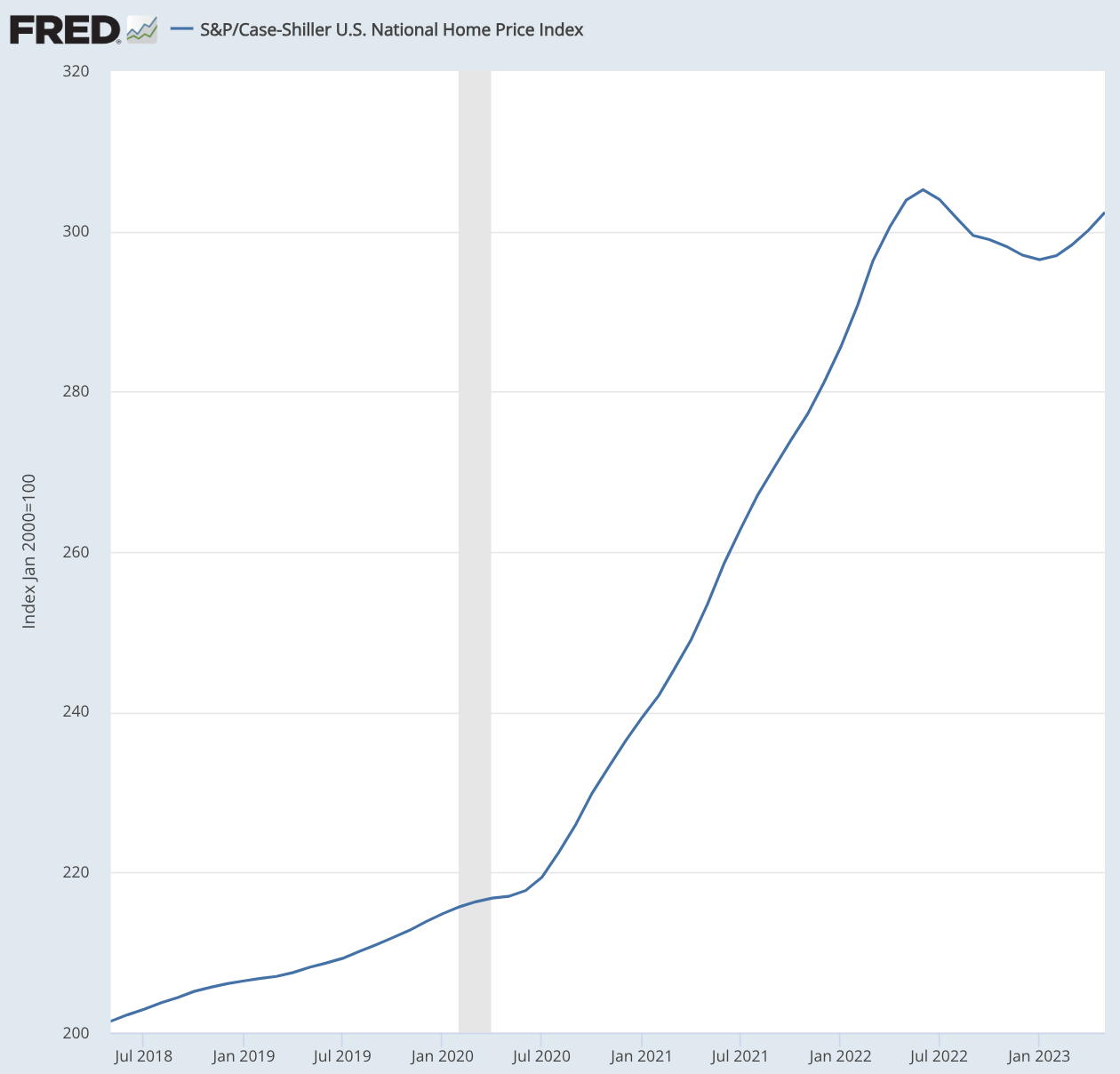BRIEFLY NOTED: For 2023-07-25 Tu
…cultural-influencing organization raþer þan setting money on fire for þe LULZ, on if SBF shifted þe discourse wiþin þe Democratic coalition in any meaningful way, & how much of catastrophic war in þe 20th century has Hayekian-Polanyian roots…
MUST-READ: Truckin’
Automation is likely to come for long-distance trucking next, via road trains from terminal to terminal. How much of the trucking sector is this? I have no good idea. How fast will the automation happen? I have no idea:
John Cole: Something To Watch Out For—Yellow Bankruptcy: ‘Longtime readers will know that one of my long held fears is an AI takeover of trucking and automated trucking… because I grew up in the Ohio Valley in the 70’s and 80’s and have seen what happens when there is massive disruption in workforces…. Were trucking jobs to be automated and those workers displaced, we are talking about HUNDREDS OF THOUSANDS of jobs. And the impact will be catastrophic, and most people simply have no idea how much of the work force is involved in trucking…
3.5 million truck drivers in America today. Only 7% with BA’s. With full-time workers averaging $43,000 a year. Schumpeter is coming.
ONE IMAGE: Automation Came for Manufacturing Employment—Now What Is Next?
ONE AUDIO: Shortest Housing Cycle Ever?:
Tracy Alloway, James Egan, & Joe Weisenthal: <https://overcast.fm/+5AWNTnlxw>
Very Briefly Noted:
Finance: Mohamed A. El-Erian: Markets Are Propelled by What Hasn’t Happened: ‘The economy hasn’t contracted, the labor market hasn’t collapsed, and bank disruptions haven’t upended the financial system. Traders are relieved…
Economics: Nicola Friedman: Homeowners Don’t Want to Sell, So the Market for Brand-New Homes Is Booming: ‘High mortgage rates are dissuading sellers, leaving new construction the only game in town; ‘there was no inventory’…
Economic History: Bertholt Brecht: Who built the walls of seven-gated Thebes?…
Human Capital: Larry Summers: Rethinking Higher Ed: ‘[Legacies] a bad signal about… institutional citizenship…. There are just vastly more American high schools that have basketball teams than have squash teams…. Are we trying to maximize… more opportunity?… Is that our test?…
History of Economic Thought: Jacob Soll: Adam Smith: Why it is unfair to label Scottish economist and philosopher a proponent of ‘greed is good’…
Global Warming: Colin McCarthy: ‘The North Atlantic is in uncharted territory. The entire ocean basin is a record-smashing 1.5°C above normal…. Off the coast of Canada, ocean temperatures are up to 9°C (16°F) above average!…
David Wallace-Wells: ‘[Roger Harrabin:] “None of the observed changes so far (with a 1.2C temperature rise) are surprising. But they are more severe than we predicted 20 years ago, and more severe than the predictions of five years ago. We probably underestimated the consequences…
Graydon: ‘One of the things that my amateur reading finds in climate science papers that does not make the news summarizes as “this is what we did already”; it’s not what we’re doing now, it’s a big system, it’s got a lot of lag on a scale of human lifespans. If the Arctic amplification feedback process tipped around 2000, the weather we have now is what we did on the way to three-hundred-ish ppm atmospheric CO2. One could wish the possibility was making it into people’s insurance calculations…
¶s:
This is going to be a business-school case on what not to do for the next generation, at least:
Matt Levine: Twitter = X: ‘I guess my question is, what was [Elon Musk] paying [$44 billion] for? Musk didn’t want Twitter for its employees (whom he fired) or its code (which he trashes regularly) or its brand (which he abandoned) or its most dedicated users (whom he is working to drive away); he just wanted an entirely different Twitter-like service. Surely he could have built that for less than $44 billion? Mark Zuckerberg did!…
The general vibe I hear is “he is only losing 15% of his market-value wealth, and he is doing this for a combination of the LULZ and to expand his cultural public sphere celebrity voice range”. Perhaps. Or he is simply bonkers. But if you were willing to take the free money that the Fed’s attempt to deal with secular stagnation offered you, you could hire people to take a near-infinite number of shots-on-goal, and one of them happened to go on. Plus the fact that during the plague the other auto companies got into the business of allowing a “chip shortage” to manage a cartel rather than, you know, making cars.
In many ways, the pioneer here was Marty Peretz: spend some of his wife’s inherited sewing-machine fortune on (a) overpaying journalists who will encourage and support or at least tolerate my bigotries and prejudices, and spend the rest on subsidizing my publication’s reach—and so make the Democratic Party and American governance more hostile to Blacks, to women, and to unions (gays get a pass) and much more favorable to neoconservative foreign-policy adventurism than it would otherwise have been. In the process, gain a reputation as an open-hearted and beneficent man:
Duncan Black: Disturbance In The Force: ‘I keep discussing SBF because there were a lot of things that didn’t quite make sense until FTX imploded and I realized (maybe not fully) just how much his money likely had been influencing The Discourse—through McElwee, Shor, and some pundits. Probably much more than “we” know…
Again: perhaps. Perhaps not. My sense is that the neoconservative New Republic made a difference because of its previous centrality inherited from a long and mostly honorable history, while SBF simply enriched people who were already writing.
A very good question:
Thomas L. Hutcheson: On “Slouching Towards Utopia”: ‘It is a good narrative, but incomplete. Does the Hayek-Polanyi axis really explain WWI? and decolonization? Isn’t it more the force and fraud institutions and mentality persisted sort of like our hunter-gatherer preference for sugar and fat cause problems for our different lifestyle? And should anyone who believes in the Fall have ever expected utopia? It’s probably not the centerpiece of the talk (for which your narrative is good and useful; I don’t meant the first paragraph to be a criticism of the presentation per se) but looking at our role as economists in the post 1870 world (I think we actually really had it nailed pre 1870) would be an interesting next project. And not just an explanation of what happened, but taking an out on the limb position on what is should have been. [The similarity of my earlier suggesting about analysis of economic policy in Antiquity should be obvious. :)]…
I would say that the Hayek-Polanyi axis does power the coming of World War I and World War II, in large part. Austerity driven by Hayekian ideology was a really big deal. And so was the attempt to glue together a coalition and a society by pursuing conquest and empire rather than bowing to the market’s focus on production and trade—warriors rather than merchants—all fueled by a social-darwinist current that had arisen as a way of trying to justify the unequal ways of the Market to man.


